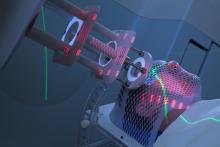As the nascent market for artificial intelligence (AI) in medical imaging develops, healthcare providers are faced with the question of how best to select, purchase and implement the rapidly expanding range of regulatory approved AI-enabled imaging applications and AI algorithms.
© Copyright Wainscot Media. All Rights Reserved.
Subscribe Now




